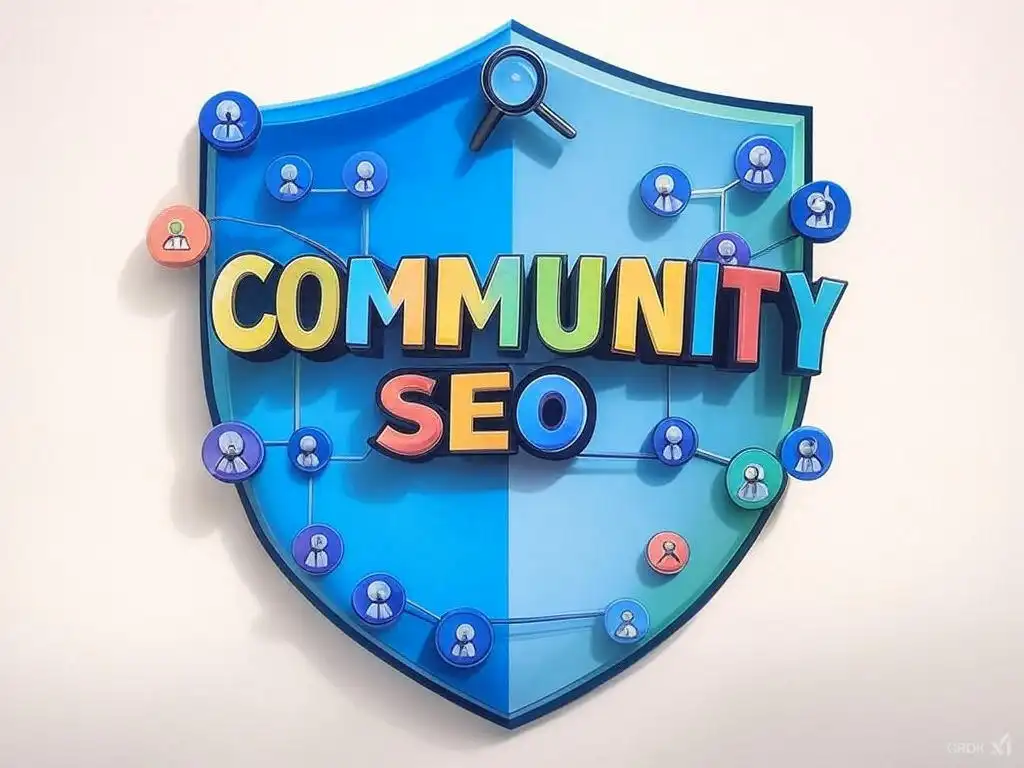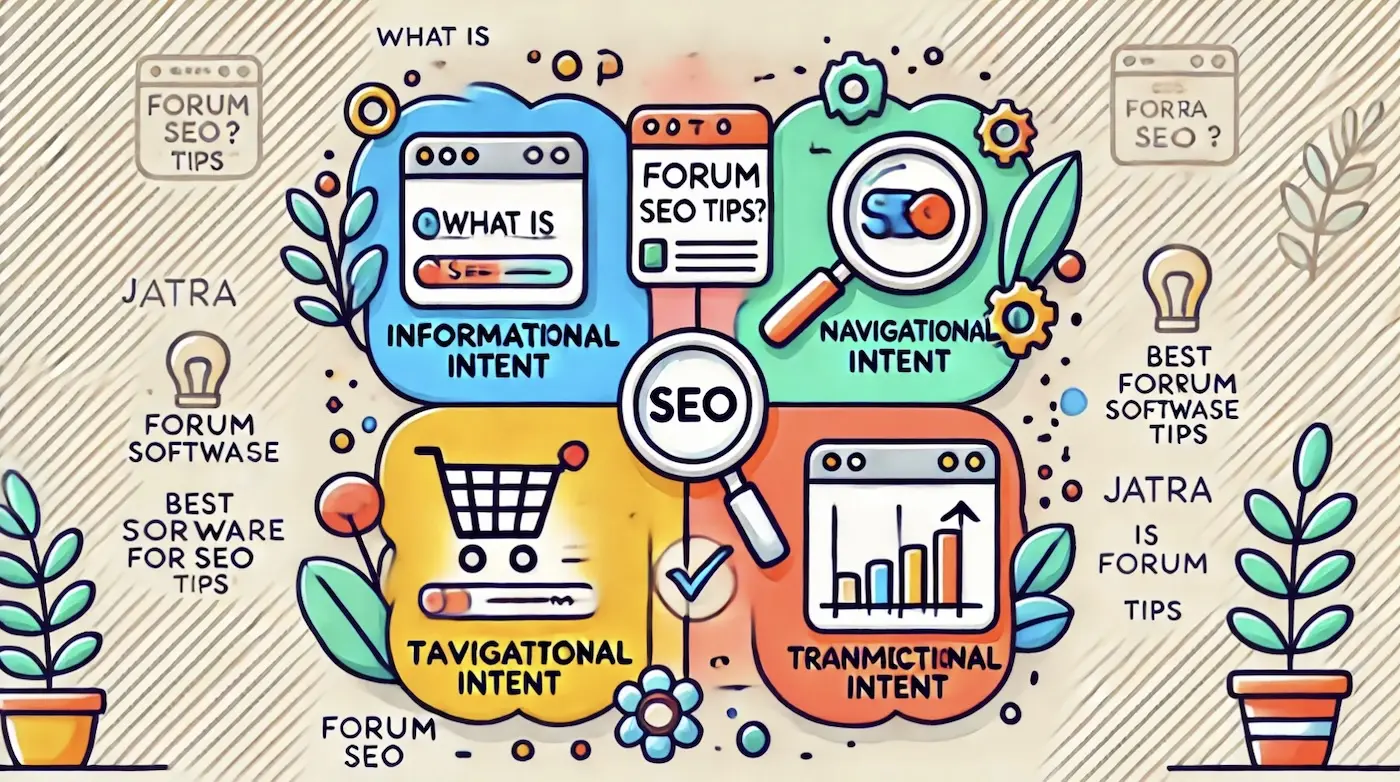SEO for Online Communities: Ultimate Guide to Organic Growth

I am a big fan of open communities - the ones that expose content to search engines and users without requiring a login.
When you nail SEO - your online community becomes your growth flywheel, attracting users on autopilot.
I want you to stop relying on social media’s unpredictable algorithms and focus on getting your community SEO right. It can get you a steady inflow of users and leads without any marketing or dollar spend.
Open Communities Win the SEO Game
The user-generated content (UGC) is a goldmine for SEO. Search engines and the LLMs love the authentic, human-experienced backed content. There’s no better place on the Internet than well-optimised communities to host it.
Reasons why SEO should be a core focus for online communities:
Organic traffic: Your discussions, articles, chats, events, webinars, quizzes - all are packed with unique long-tail keywords. It’s impossible to cover them through blog posts alone.
Sustained growth: Unlike paid-ads, SEO driven growth is long-term. Once Google, Bing and other search engines understand your community well, they send highly targeted traffic your way.
Higher engagement: An open community demonstrates its value upfront. When visitors see the value and real humans with similar interests; they engage more.
Topical authority: A well-optimised, content-rich community commands topical authority - a term professional SEOs swear by.
Technical SEO Foundation for Forums / Communities
At the Jatra Community Platform, we blend the community aspects with forums to create a holistic experience for your users.
Before diving into content strategies, let’s focus on the strong technical foundation for better SEO.
1. Optimise Site Structure and URLs
Simple Site Structure for Easy Navigation
A simple site structure wins the SEO game. Why? Because it makes it less confusing for the users so that they navigate the community easily. It also improves the average session time - a ranking signal that search engines like Google use to determine the usefulness of the site.
Another benefit of having a simpler site structure is that it helps Google save the crawl budget. The crawl budget determines how many pages the Google bot crawls per visit. You’d typically want Google to crawl your most recently created and updated pages before others.
At Jatra, we also pay attention to reducing the bounce rate - a metric that tracks whether the user jumped off without navigating the site.
SEO-friendly URL Structure
The simple rule for SEO-friendly URLs is that they need to be readable:
Not Good -
example.com/t/seo-basics?id=443Good -
example.com/t/seo-baics/343Best -
example.com/article/seo-basics
Subfolder or Subdirectory
For community, always use a subfolder over subdirectory. You want to keep your user-generated content away from your marketing pages.
Let the backlinks for community be separate from your main marketing site.
Tip: Link to your marketing pages from your community content to transfer the SEO-juice from community to main business site.
2. Activate GSC and XML Sitemap
It’s essential to inform Google that your community exists and has useful content. Create an account on Google Search Console and verify your community.
Once your community subdomain is recognized by Google, it’s time to keep it informed about our latest content through properly formatted XML sitemap.
An XML sitemap is a specially formatted document that contains information about links to various pages on your site, the timestamp of the last update to the page and the change frequency.
Google uses these sitemaps as guiding point to crawl your website. Sitemaps also help Google discover content that does not have any inbound links.
Submit the link to sitemap to Google Search Console.
If your community is hosted on Jatra - we build and update your sitemap automatically.
GSC also helps you identify technical issues with your site and also shows search-query information.
3. Improve Site Speed and Core Web Vitals
Google rewards fast-loading websites. Make sure that your community pages load quickly, typically in less than 2 seconds for optimal user experience.
Over the years, it’s been observed that server-rendered pages do better in SEO. They load quickly and do not confuse the web-crawlers with Javascript.
There are techniques to improve the speed of your community platform:
Enable caching - Use Redis Cache
Optimise HTML, CSS and JS. Remove unused code.
Use
load=”lazy”tag for imagesServe the assets via CDN or servers physically nearer to your user
A fast loading site is an essential core web vitals feature. Use the Google Core Web Vitals to test your community’s LCP, INP and CLS.
4. Implement Structured Data (Schema Markup)
Providing Structured Data in your HTML is a way to help Google understand your page better. Google supports variety of structured data.
At Jatra, we optimise your content automatically for SEO using JSON-LD structured data snippets.
For example, when you publish an article, your content automatically receives structured data snippet with information like ‘@context’, ‘@type’, ‘headline’, ‘image’, ‘datePublished’, ‘dateModified’ and ‘author’.
No technical wizardry expected from you.
We support multiple schema types like Article, Breadcrumb, Discussion forum, Education QnA, Event, Product and many are under active development.
It’s the reason Jatra’s content gets SEO boost without any extra efforts.
With the technical SEO foundation in place, it’s time to look for on-page SEO for community content.
On-Page SEO for Community Content
Technical SEO ensures that search engines can crawl website content. However, on-page SEO ensures that search engines actually ‘want to’. It also helps them make sense of your content. Let’s find out how to do it.
…and it’s simpler than you think.
1. Optimize Titles for Search Intent
Google ranks content based on how well it matches the intent behind user’s search query.
 Let’s quickly look at different types of search intents:
Let’s quickly look at different types of search intents:
Informational: “What is forum SEO?” (User wants information)
Navigational: “Jatra forum SEO tips” (User wants to find specific page and topic)
Transactional: “Best forum software for SEO” (User is looking for SEO-optimised community platform)
Commercial: “Is Jatra an alternative to Slack?” (User comparing options before making purchase decision)
Google tries to make sense of the article using NLP (Natural Language Processing) techniques to tokenize the text and understand the topic. Rewrite the titles of your community content so that they make better sense to users and Google. For example:
“SEO help?” is not an optimised title
“How to optimise titles for better SEO?” is an optimised title.
Make sure to tweak the titles of the threads created by users.
2. User Natural Keyword Variations (LSI and Entities)
Search engines look for semantic relevance. That is, it uses a combination of related keywords and phrases to make a better guess about your content.
For example, if the text says “Apple”, combining it with terms like “hardware”, “software”, “iOS” will help Google determine that text is about Apple the company that makes hardware. Otherwise, you can use keywords like “farm”, “tree”, “fruits” when talking about Apple, the fruit.
The best way to find these LSI keywords is through your GSC. It will show you the terms people used to find your community through Google.
3. Improve Internal Linking
Internal links are one of the top ranking factors. It serves two key purposes:
Helps users find relevant content
Helps web crawlers find relevant content to build context
Passes the SEO-juice to linked pages and build topical clusters
In this article, we have linked to several resources on Jatra community as well as external high-authority websites.
4. Encourage High-Quality User-Generated Content
Especially in the initial stages of building your community, you are in-charge of content creation. Focus on creating high-quality, original, painkiller content.
Few tips to write high-quality content:
Create a mix of QnA content and Articles
Write clear titles and subtitles
Provide direct answers that serve user intent
Keep QnA answers 50 - 300 word long and articles between 1200 - 1800 word long
Use images, videos to keep your content engaging.
When users arrive and your community gets UGC, make sure to:
Put content guidelines in place
Encourage high-quality answers
Reward members for writing useful answers through Likes, Rewards, Best Answer features or through public recognition.
Keep spam and negative content out of your community.
5. Balance follow and nofollow links
Your community needs to have a balanced mix of follow and nofollow links. It’s a mistake to make all ‘external’ links as ‘nofollow’ - a common practice that many community platforms follow.
At Jatra, we’ve solved this problem. I encourage you to read about it: SEO Feature: Automatic Follow and NoFollow Links.
Off-Page SEO: Build Authority and Backlinks
Getting technical and on-page SEO is 80% of the battle. Rest 20% is about optimizing community for off-page SEO.
If you want to rank fast, focus on -
Building topical authority
Getting natural backlinks
How do you go about it? It’s simple.
Share community content on social media.
Share your community content on social media like X, LinkedIn, Reddit and other niche forums. Reddit is brutal - so be careful.
If you publish articles on platforms like Medium - make sure to add backlinks to your community.
Encourage natural backlinks
Write guest posts and get them published on high-authority websites in your niche
Get mentioned on wiki-pages
Get your community listed on directories
Launch community on platforms like ProductHunt, BetaList, Startup Page etc.
Interview industry leaders, influencers
Try to interview industry leaders and influencers in your niche. They’ll promote you through their own network, websites with huge followers count.
Keep watch on spammy links: Disavow spammy or relevant links. It’s better to be safe than getting penalised by Google.
Should you buy paid backlinks?
Stay away from buying backlinks. It may give you a temporary boost, but I’ve seen most websites get hurt when Google updates its algorithm.
I’ve seen that Google’s evolving from relying on backlinks to determine page-authority. Aim for natural backlinks.
Measure and Improve SEO Performance
Once your SEO strategy is in place, it’s time to track your community’s performance and refine your approach.
1. Use GSC and Analytics
These are two excellent tools from Google that will help you get a complete overview of your site, from search engine’s perspective.
It will help you discover traffic sources, top ranking pages, queries that bring traffic and also technical issues.
2. Optimise Existing Content
It’s important to keep the data relevant. Update your old content with keywords, facts, data and images as necessary.
Pay even more attention to optimising internal links.
3. Google Trends
An underrated tool. It gives you information about the latest trending topics in your niche. Cover these topics through your community. it helps people stay engaged and also gives you fresh content.
Wrap Up: SEO is Your Community’s Superpower
SEO is the secret weapon for building a thriving online community. A well-optimised community or forum can rank for thousands of search queries and bring users highly interested in your niche.
In my career, I’ve seen the threads written 10+ years ago brining in traffic and it surprises me to date.
With Jatra, you don’t have to worry about SEO. If you have questions, ask them below.